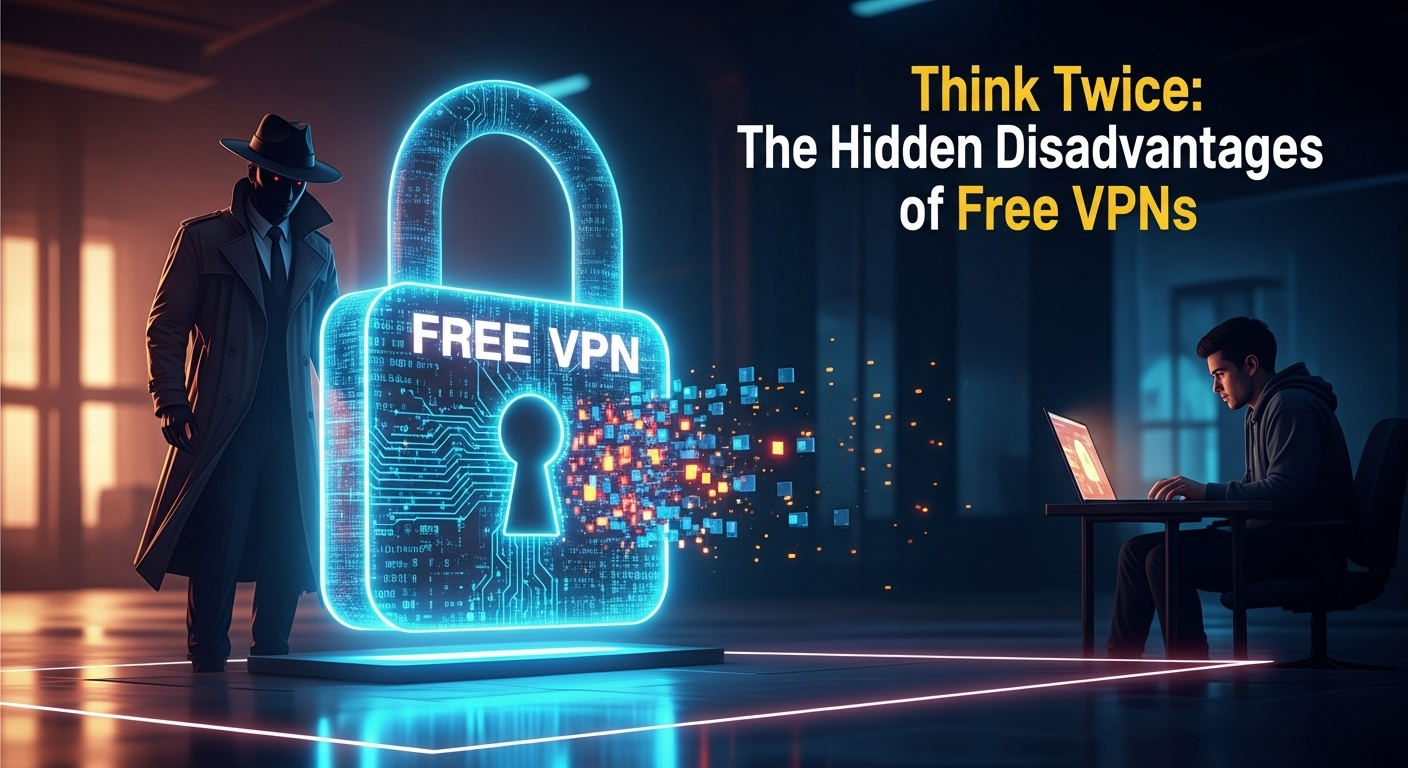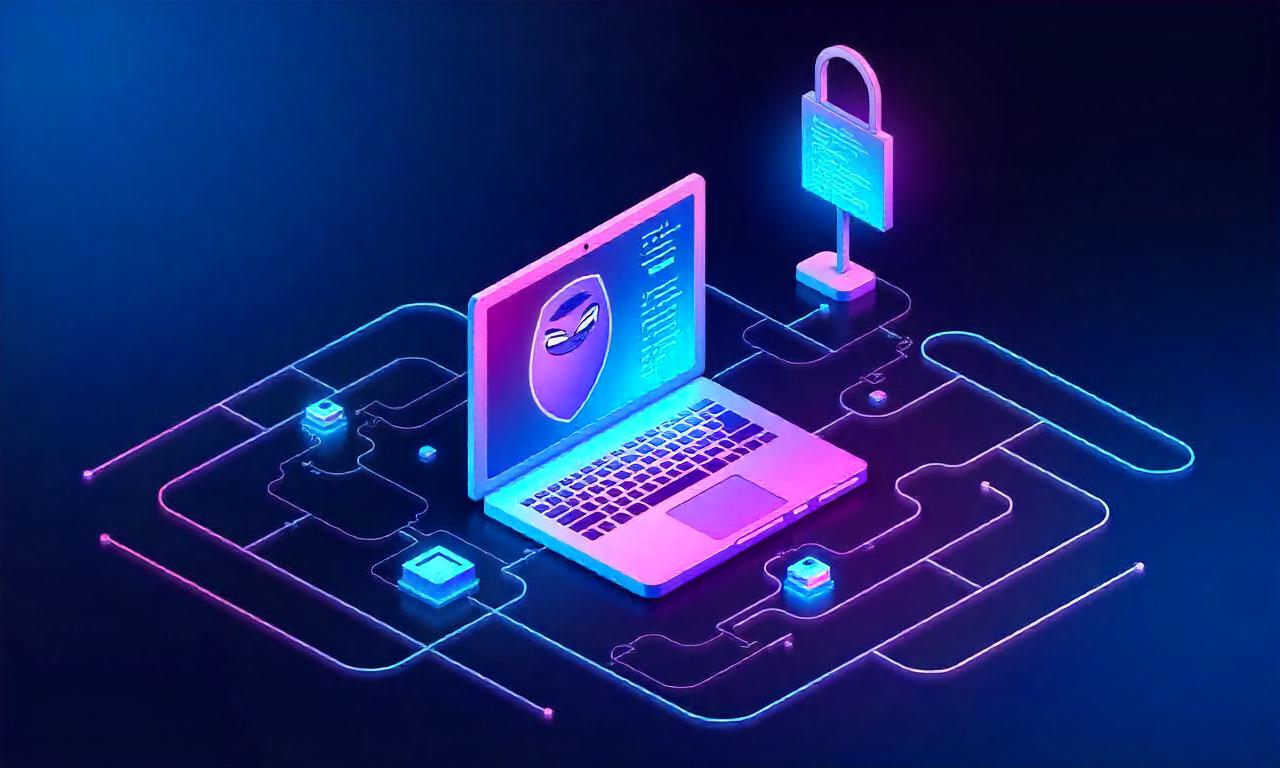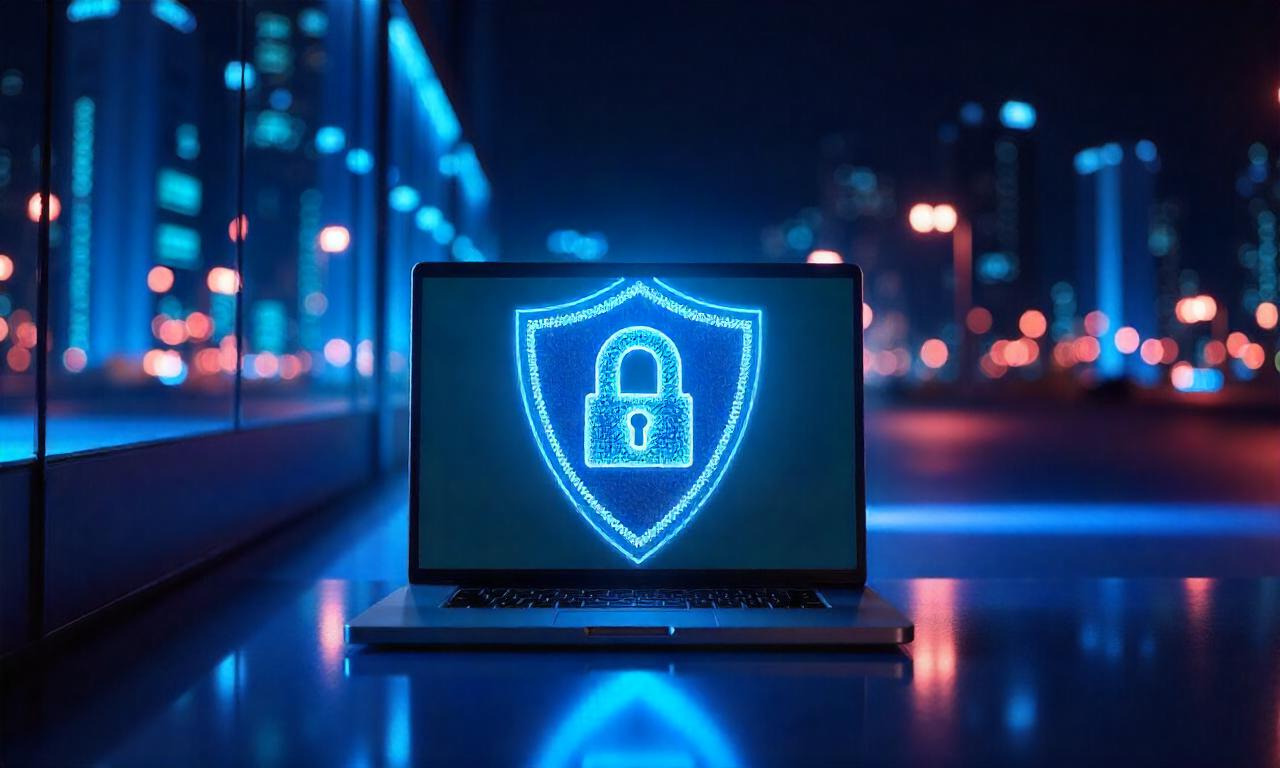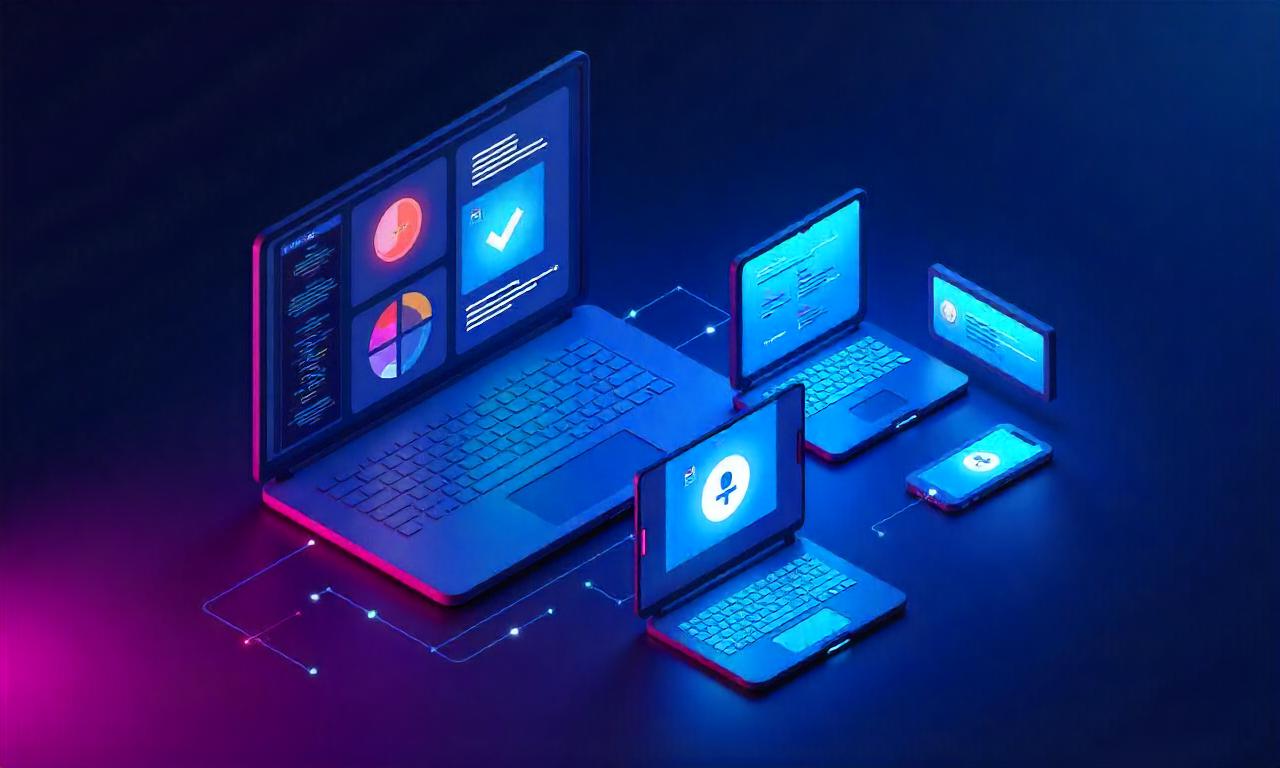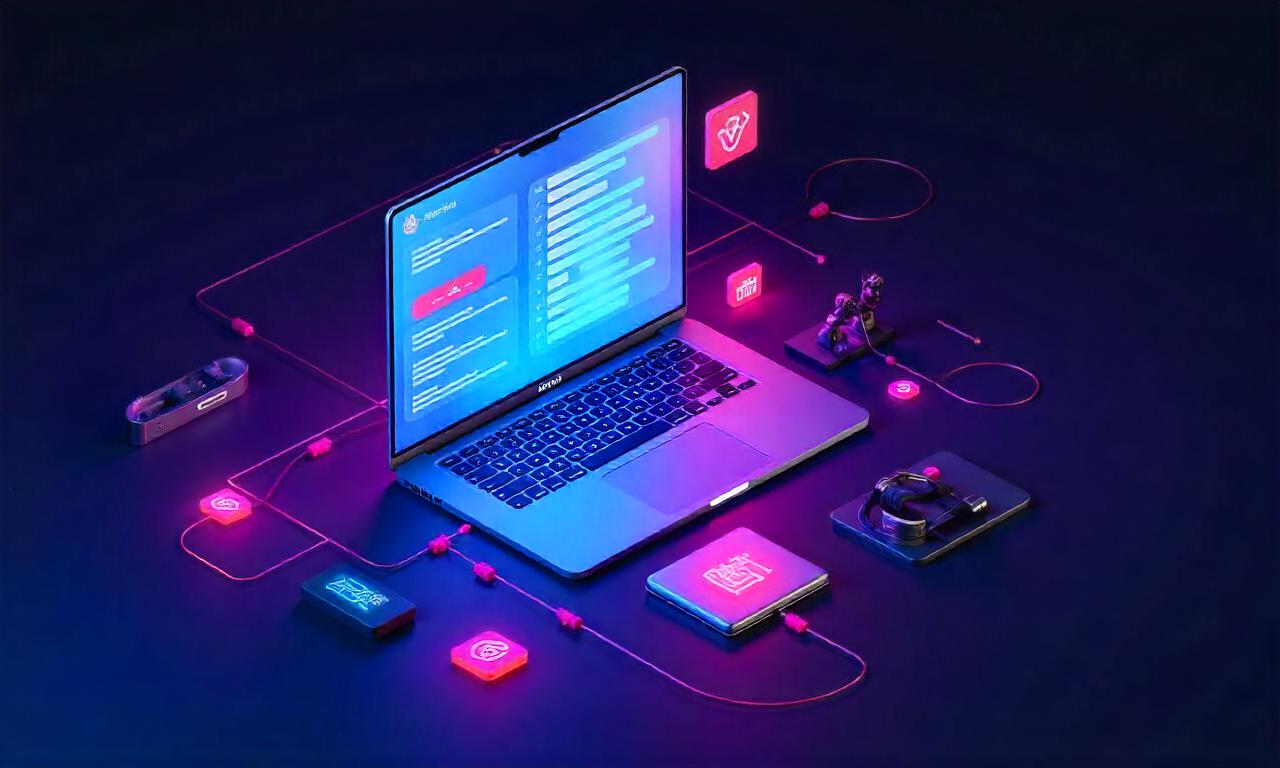In the vast landscape of the internet, the promise of "free" is an almost irresistible siren call. Free software, free streaming, and free tools—they all lure us in with the prospect of getting something for nothing. Among these, the free Virtual Private Network (VPN) stands out as a particularly tempting offer, promising digital privacy, security, and unrestricted access to the global web without costing a dime. However, as the old adage goes, if you're not paying for the product, you are the product. The convenience of a no-cost service often masks a dark underbelly of significant risks and trade-offs. It is crucial to understand the full spectrum of disadvantages of using a free vpn, as they can compromise the very privacy and security you seek to protect.
Table of Contents
ToggleThe Illusion of "Free": How Free VPNs Really Make Money
The fundamental question you should ask about any free service is, "What's the business model?" Servers, development, and maintenance all cost money. A VPN provider, like any business, needs a revenue stream to stay afloat. While premium VPNs charge a subscription fee, free providers must resort to alternative, often non-transparent, methods of monetization. This is where the line between service provider and data exploiter becomes dangerously blurred. The "cost" of a free VPN isn't paid with money, but with your data, your security, and your user experience.
These business models are predicated on the large volume of users they can attract with the allure of a free service. Once you are part of their ecosystem, they can leverage your presence in several ways. The most common strategies involve treating your digital footprint as a commodity to be packaged and sold, or deliberately degrading your experience to push you towards a paid upgrade. This "freemium" model is common, but with free VPNs, the free tier can be so compromised that it poses more risks than using no VPN at all.
Understanding these monetization tactics is the first step toward recognizing the inherent dangers. They are not simply minor inconveniences; they are fundamental flaws in the service's architecture that directly contradict the purpose of using a VPN. Instead of acting as a shield for your online activities, a free VPN can become a two-way mirror, exposing you to the very entities you were trying to hide from.
- Selling Your Personal Data
The most alarming way free VPNs generate revenue is by logging and selling your data. This includes your browsing history, the websites you visit, how long you stay on them, your IP address, device information, and connection timestamps. This treasure trove of personal information is incredibly valuable to third parties, such as data brokers, advertising companies, and market research firms. They use this data to build detailed profiles about you for targeted advertising, or worse.
A reputable paid VPN operates on a strict no-logs policy, meaning it doesn't track or store any information about your online activities. Free VPNs, on the other hand, often have vague or misleading privacy policies that give them the legal leeway to collect your data. In 2017, a comprehensive study by CSIRO analyzing 283 VPN apps found that an alarming 75% of free VPNs contained some form of tracking, actively undermining user privacy. Your data, which you intended to protect, becomes the currency you pay with.
- Intrusive Advertisements and Tracking
Another common monetization method is injecting ads directly into your browsing experience. This isn’t just about a simple banner ad on their website. Free VPN services can actively inject pop-ups, banner ads, and even video ads into the websites you visit, creating an intrusive and frustrating user experience. These ads not only slow down your connection but also pose a significant security risk.
Many of these ad networks use trackers and cookies to monitor your behavior across the web, further eroding your privacy. Some malicious free VPNs have even been caught redirecting users to affiliate websites without their consent or replacing legitimate ads on websites with their own. This practice, known as ad injection, is not only unethical but can also expose you to phishing scams and malware if the injected ads lead to malicious sites.
- Upselling Through a Degraded Service
The “freemium” model is a legitimate business strategy, but many free VPNs take it to an extreme. They intentionally cripple the free version of their service to make it almost unusable for anything other than basic, intermittent browsing. This is a tactic designed to frustrate you into upgrading to their paid plan.
These limitations manifest in several ways:
- Strict data caps: You might only get 500MB or 2GB of data per month, which is quickly consumed by video streaming, downloading, or even heavy social media use.
- Throttled speeds: Your connection speeds are deliberately slowed down, making activities like streaming in HD or online gaming impossible.
- Limited server selection: You may only have access to a handful of overcrowded servers in a few countries, which are often slow and unable to unblock geo-restricted content.
Severe Security and Privacy Compromises
The primary reason anyone uses a VPN is to enhance their online security and privacy. A VPN is supposed to create an encrypted tunnel that shields your internet traffic from prying eyes, including your Internet Service Provider (ISP), hackers on public Wi-Fi, and government surveillance. Unfortunately, many free VPNs fail spectacularly at this core function, often providing a false sense of security that is more dangerous than no security at all.
These services often cut corners on the most critical aspects of security infrastructure. They may use outdated and weak encryption protocols that can be easily broken, or they might not even encrypt your traffic at all, simply routing it through their servers while leaving it completely exposed. A 2016 study shockingly revealed that 18% of the free VPNs tested didn't use any encryption whatsoever, essentially functioning as unsecure proxies while marketing themselves as VPNs.
Worse still, some free VPNs are nothing more than "honeypots"—malicious services set up by cybercriminals or even government agencies to attract and monitor unsuspecting users. By offering a free privacy tool, they can log all your activities, steal sensitive information like passwords and financial details, and gain a complete picture of your digital life. You are willingly handing over your data to the very entities you should be most wary of.
- Weak Encryption and Data Leaks
A VPN’s strength lies in its encryption. Premium services use robust protocols like OpenVPN and WireGuard with AES-256 encryption, the same standard used by banks and militaries. Many free VPNs, to save on costs and processing power, opt for weaker or obsolete protocols like PPTP, which is known to have significant security vulnerabilities. This leaves your data susceptible to interception and decryption.
Furthermore, free VPNs are notorious for suffering from IP and DNS leaks. A DNS leak occurs when your DNS requests (the 'phonebook' of the internet that translates domain names to IP addresses) are sent outside the encrypted VPN tunnel, exposing your browsing activity to your ISP. An IP leak, including WebRTC leaks, exposes your real IP address, completely defeating the purpose of the VPN and revealing your true location. Reputable VPNs have built-in DNS and IP leak protection, a feature often absent in their free counterparts.
- Embedded Malware and Adware
Perhaps the most direct threat posed by free VPNs is the risk of malware. When you download and install a free VPN application, especially from an unofficial source or a less-reputable app store, you could be unknowingly installing malicious software on your device. Numerous investigations have found popular free VPN apps on the Google Play Store and Apple App Store to be riddled with malware, spyware, and aggressive adware.
The aforementioned CSIRO study found that a staggering 38% of the tested free VPN apps contained malware. This malicious code can do anything from bombarding you with ads to stealing your banking credentials, hijacking your device for a botnet, or installing ransomware. Giving an application VPN-level permissions on your device is a significant act of trust; it grants the app visibility over all your internet traffic. Granting this trust to an unknown, free provider is a gamble with disastrous potential consequences.
- Untrustworthy "No-Logs" Claims
A cornerstone of a trustworthy VPN is a transparent and audited no-logs policy. This is a provider’s pledge not to collect or store any data that could be used to identify you or your online activities. While many free VPNs will claim to have a no-logs policy on their marketing pages, their actual privacy policy often tells a different story, filled with legal jargon that permits extensive data collection.
Even if a free VPN claims to be "no-logs," there is often no way to verify it. Premium VPN providers increasingly subject themselves to independent third-party audits to prove their claims. These audits involve security firms examining their server infrastructure and code to confirm that they are adhering to their privacy promises. Free VPNs lack the financial incentive and transparency to undergo such rigorous, costly audits, leaving you to take them at their word—a word that is often worthless.
A Consistently Poor User Experience
Beyond the critical security and privacy risks, one of the most immediate disadvantages of using a free VPN is the overwhelmingly poor user experience. If your goal is to stream foreign content, play online games without lag, or download large files securely, a free VPN will almost certainly lead to frustration. The performance limitations are not accidental; they are a direct result of the service's business model.
Free VPN providers have no financial incentive to invest in a high-quality global server network. Instead, they cram as many users as possible onto a small number of servers. This overcrowding inevitably leads to a dramatic drop in performance for everyone. You are sharing limited bandwidth with thousands of other free users, resulting in a connection that can be slower than your regular internet speed without a VPN.
This poor performance affects every aspect of your online activity. Websites will take longer to load, videos will buffer endlessly, online games will be unplayable due to high latency (ping), and downloading or uploading files will become a test of patience. The service becomes so inconvenient that it fails to serve any practical purpose for the modern internet user, rendering the promise of "unrestricted access" completely hollow.
- Cripplingly Slow Speeds and Throttling
The most common complaint about free VPNs is their excruciatingly slow connection speed. When a server is overloaded with users, its available bandwidth is divided among them. This means your individual connection speed plummets. It’s simple math: a single 10 Gbps server can provide a great experience for a few hundred paid users, but it will grind to a halt when serving ten thousand free users simultaneously.
Some free VPNs also engage in active bandwidth throttling, deliberately limiting the speed for free users to conserve resources and encourage upgrades. This often means your speed is capped at a low number, like 1-2 Mbps, which is barely enough for standard-definition video, let alone 4K streaming or fast downloads. This makes the VPN unusable for anything bandwidth-intensive.
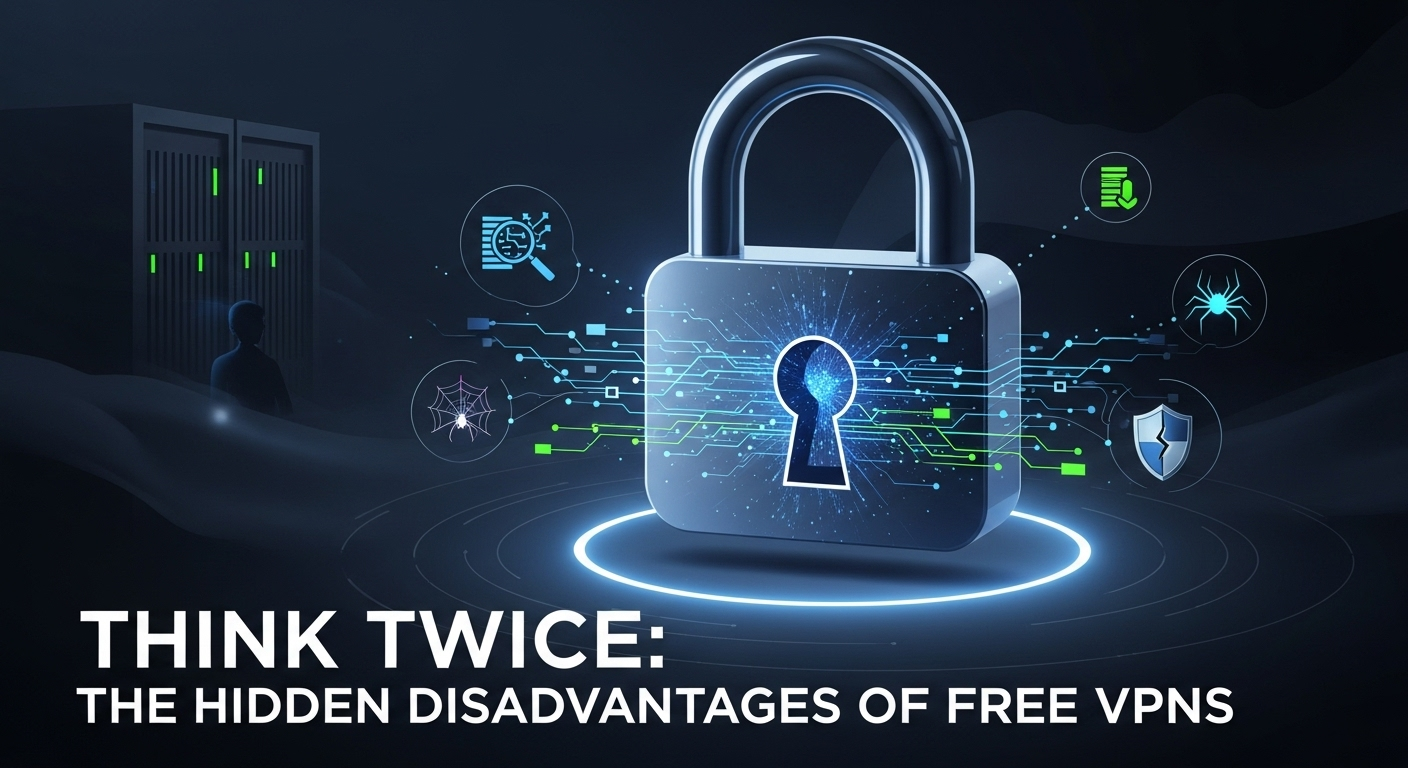
- Severe Data Caps and Server Limitations
Most free VPNs impose strict data caps, limiting how much data you can use while connected to the VPN. These caps are often very low, ranging from 500MB per day to 5GB per month. To put that in perspective, streaming one hour of HD video on Netflix can use up to 3GB of data. This means your free VPN allowance could be exhausted after a single movie.
Additionally, the server network offered by free providers is typically minuscule compared to paid services. You might only get access to servers in 3-5 countries, whereas a premium provider may offer thousands of servers in 60-100+ countries. This severely limits your ability to bypass geo-restrictions, as you may not have access to a server in the country you need. These limited servers are also the most crowded, compounding the issue of slow speeds.
- Inability to Unblock Streaming Services
One of the most popular reasons for using a VPN is to access geo-blocked content on streaming platforms like Netflix, Hulu, BBC iPlayer, and Disney+. These platforms are engaged in a constant battle with VPN providers, actively identifying and blocking IP addresses associated with VPN servers.
Maintaining access to these services requires significant resources. Premium VPNs invest heavily in a constant rotation of IP addresses and specialized servers to stay one step ahead. Free VPNs simply do not have the budget or the technology to compete. Their few, overcrowded servers are quickly identified and blacklisted by streaming services, making them completely ineffective for unblocking content.
Free VPN vs. Paid VPN: A Direct Comparison
When you place a free VPN and a reputable paid VPN side-by-side, the differences are not just incremental; they are fundamental. The choice is not between a free product and a paid one, but between a risky, compromised service and a genuine tool for digital privacy and freedom. A small monthly investment in a paid VPN buys you peace of mind, robust security, and a reliable user experience.
The core difference lies in the business model, which dictates every other aspect of the service. A paid VPN's business model is transparent: you pay a fee, and in return, they provide a secure, private, and high-performance service. Their reputation and survival depend on protecting your privacy. A free VPN's business model is opaque and user-hostile: you pay nothing, and in return, they harvest your data and compromise your experience to make money.
Thinking of a paid VPN as a monthly expense is the wrong framing. It is an investment in your digital security, much like you would pay for antivirus software or a secure lock for your home. The cost of a data breach, identity theft, or having your personal information sold to the highest bidder far outweighs the small monthly fee of a quality VPN service.
| Feature | Free VPN | Paid VPN |
|---|---|---|
| Business Model | Sells user data, shows ads, upselling | User subscription fees |
| Privacy Policy | Logs user data, vague and misleading | Strict, audited no-logs policy |
| Security | Weak or no encryption, IP/DNS leaks | Strong AES-256 encryption, leak protection |
| Performance | Extremely slow speeds, throttled | High-speed connections optimized for streaming |
| Data Usage | Strict data caps (e.g., 500MB/day) | Unlimited data and bandwidth |
| Server Network | Few servers in a handful of countries | Thousands of servers in 60+ countries |
| Streaming | Fails to unblock major platforms | Reliably unblocks Netflix, BBC iPlayer, etc. |
| Malware Risk | High risk of embedded malware/adware | Vetted, clean apps from official stores |
| Customer Support | Non-existent or limited to FAQs | 24/7 live chat and email support |
The Lingering Question: Is a Free VPN Ever Okay?
With all these significant drawbacks, is there ever a scenario where using a free VPN is acceptable? The answer is nuanced, but generally, the risks outweigh the benefits for the vast majority of users. For prolonged or sensitive use, the answer is a definitive no. The potential for data logging, malware, and security leaks is simply too great.
However, there is a small exception: "freemium" plans offered by highly reputable, well-known paid VPN providers. These companies offer a limited free version as a taster for their full product. While these free plans still come with significant limitations (like data caps and fewer server choices), they are generally built on the same secure infrastructure as the paid version. They won't sell your data or infect you with malware because their primary goal is to convert you to a happy, paying customer, and violating your trust would destroy their core business.
Even in this best-case scenario, the service is only suitable for very specific, low-stakes situations. For example, if you quickly need to check your email on a coffee shop's public Wi-Fi and have already used a more secure option, a reputable freemium VPN is better than nothing. But for daily use, streaming, downloading, or any activity involving sensitive information, these limited free plans are not a viable long-term solution. The disadvantages of using a free VPN, even from a good provider, often mean the service is too restrictive to be genuinely useful.
Frequently Asked Questions (FAQ)
Q: Are all free VPNs dangerous?
A: While not every free VPN is malicious, the vast majority operate on business models that are inherently anti-privacy. They may log your data, show you ads, or provide weak security. The safest "free" options are the limited freemium plans from top-tier paid VPN providers, but even these come with major restrictions on speed, data, and server access.
Q: Can a free VPN really steal my personal information?
A: Absolutely. A free VPN can steal your information in several ways. Firstly, by logging your browsing activity and selling it to third parties. Secondly, if the VPN app itself contains malware or spyware, it can actively steal passwords, banking details, and other sensitive data directly from your device.
Q: Is using a free VPN better than using no VPN at all on public Wi-Fi?
A: This is a tricky question. A reputable "freemium" VPN from a trusted provider is better than using public Wi-Fi with no protection. However, a shady, unknown free VPN can be worse than no VPN. It gives you a false sense of security while actively monitoring your traffic and potentially exposing you to malware, which is a greater risk than the typical "man-in-the-middle" attack on public Wi-Fi.
Q: How can I spot a potentially dangerous free VPN?
A: Look for these red flags:
- Vague or non-existent privacy policy.
- No information about the company behind the VPN.
- Based in a jurisdiction known for poor privacy laws (e.g., a member of the 5/9/14 Eyes intelligence-sharing alliances).
- App requires excessive permissions on your device (e.g., access to contacts, camera).
- Overwhelmingly negative reviews that mention ads, slow speeds, or security issues.
Conclusion: An Investment in Your Digital Self
In the digital age, your privacy is a valuable asset. While the appeal of a free VPN is understandable, the hidden costs are far too high. The myriad disadvantages of using a free vpn—from the sale of your personal data and exposure to malware to cripplingly slow speeds and non-existent security—transform what seems like a shield into a liability. You are trading your digital well-being for the illusion of security.
Instead of gambling with your data, the wisest choice is to make a small investment in a reputable, paid VPN service. For the price of a cup of coffee a month, you gain robust encryption, a strict and verified no-logs policy, high-speed connections across a global server network, and the peace of mind that comes from knowing your digital life is truly private. Don't compromise on your security. Think twice before you click "download" on that free VPN, and choose to protect your digital self.
***
Article Summary
The article, "Think Twice: The Hidden Disadvantages of Free VPNs," provides an in-depth analysis of the significant risks and drawbacks associated with using free Virtual Private Network services. While offered at no monetary cost, these VPNs monetize their users through methods that directly compromise the privacy and security they claim to provide.
The primary disadvantages highlighted include:
- Exploitative Business Models: Free VPNs often make money by logging user data (browsing history, IP addresses) and selling it to advertisers and data brokers. They also inject intrusive ads and trackers into your browsing sessions.
- Severe Security Flaws: Many free VPNs use weak or outdated encryption protocols, or none at all. They are prone to IP and DNS leaks, which expose a user's real location and online activity. A significant number of free VPN apps have been found to contain malware, spyware, and other malicious code.
- Poor Performance and User Experience: To cut costs and encourage upgrades, free VPNs offer a severely degraded experience. This includes extremely slow speeds due to overcrowded servers, strict data caps that make streaming or downloading impossible, and a very limited selection of servers that cannot unblock popular streaming services.
- Lack of Trust and Accountability: Unlike premium VPNs that undergo independent audits to verify their "no-logs" claims, free providers operate with a lack of transparency and are not accountable for data breaches or service failures.
The article concludes that using a shady free VPN is often more dangerous than using no VPN at all due to the false sense of security and a high risk of malware. The recommended solution is to invest a small monthly fee in a reputable paid VPN, which provides robust security, a verified no-logs policy, unlimited high-speed data, and reliable customer support, ensuring genuine protection for your digital privacy.

